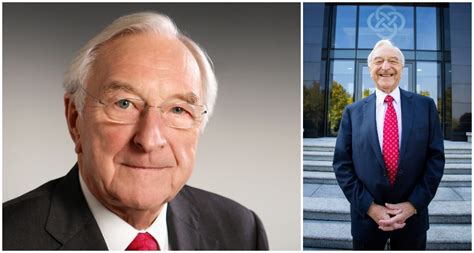A Quote by Martin Naughton
Making new products is an easy tap for a company in a recession.
Related Quotes
Being an entrepreneur I love to help people, and I think through the products that we develop in my company, we will be able to help a lot of people. Whether it's help them to get over the difficulties of a technology and use it. Or helping employees, creating new jobs, new opportunities for people that work in my company.
During the last five years, those four advantages-costs, products, people, goodwill-have been the salvation of Interface during a recession that saw our primary marketplace shrink by 38% from peak to trough-38%! As a heavily leveraged company with over $400 million in debt, we might not have made it without the sustainability initiative and, especially, the support of our customers. This revised definition of success-this new paradigm-has a name: "Doing well by doing good". It is a better way to bigger profits.
I admire companies that have a purpose, passion, and performance. I am a fan of Unilever under its CEO Paul Polman, not only for the company's insights into women and men when they buy beauty products or skin products (the DOVE woman, the AXE man), but also as a company seeking to achieve both growth and practicing social responsibility.
In fact, technology in, and of, itself does not cause particular kinds of change. It is, essentially, an enabling or facilitating agent. It makes possible new structures, new organizational and geographical arrangements of economic activities, new products and new processes, while not making particular, outcomes inevitable.



































